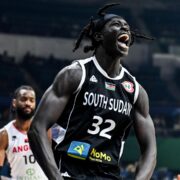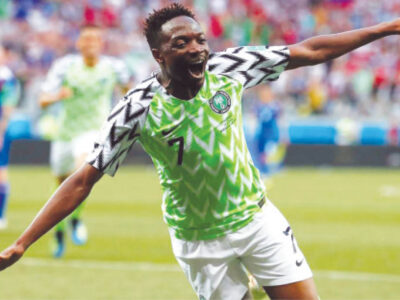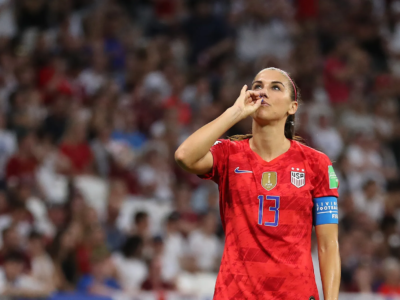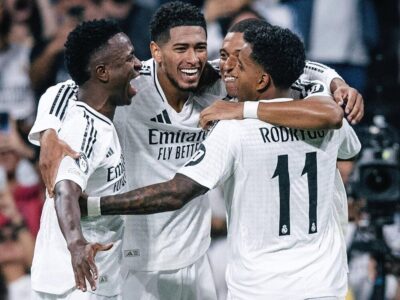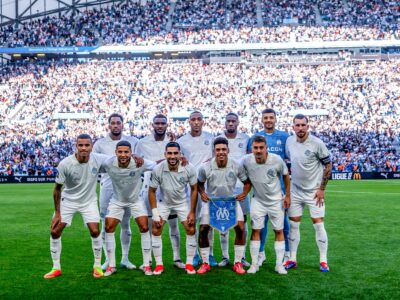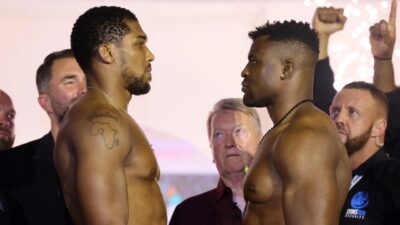While traditional football rivalries are often defined by geography or historical conflicts, the Nigeria vs Argentina rivalry stands out as an unusual yet intense cross-continental encounter.
Despite the geographical distance and cultural differences, this rivalry has become one of the most exciting and closely contested in international football.
It all began with the 1996 Olympic final, when Nigeria’s under-23 team pulled off a stunning upset against Argentina, winning 3-2 in a dramatic showdown. This brought Africa its first Olympic football gold and established Nigeria as a rising power on the global scene.
The rivalry reignited in the 2014 World Cup group stage in Brazil. Argentina narrowly defeated Nigeria 3-2 in an electrifying match. Lionel Messi and Ahmed Musa went head to head with sensational goals.
For fans, these Nigeria-Argentina matchups aren’t just about the scoreline—they’re epic battles of skill and pride that make this cross-continental rivalry one of the most exciting in world football.
This article explores the history and cultural significance of the Nigeria-Argentina football rivalry.
Historical Context of Both Football Nations
Argentina’s football story follows the trail of icons like Diego Maradona, Lionel Messi, Gabriel Batistuta, and Juan Román Riquelme.
With three World Cup victories (1978, 1986, and 2022) and a solid Copa America haul, Argentina’s style blends skill and passion, reflecting the country’s deep love for the game.
Nigeria’s ascent in football began in the 1990s, with the Super Eagles making a mark through players like Rashidi Yekini, Daniel Amokachi, Sunday Oliseh, Jay-Jay Okocha, and Nwankwo Kanu.
These legends further solidified Nigeria’s reputation, leading to successes in the AFCON and a historic Olympic gold in 1996. These achievements have elevated Nigeria as a powerhouse, inspiring generations across Africa and boosting the sport’s popularity continent-wide.
Key Matches in the Nigeria vs. Argentina Rivalry
Argentina and Nigeria first met in international youth tournaments, notably the FIFA U-20 World Cup and the U-17 competitions. These early meetings hinted at a budding rivalry as both nations approached the game with vibrant styles.
The 1994 World Cup Group Stage (USA)
The stage was set for a historic clash as Nigeria made its World Cup debut against the iconic Argentine squad led by the legendary Diego Maradona. The buzz was palpable in the air; this was more than just a game – it was a defining moment for Nigerian football.

Nigeria displayed their flair and tenacity, taking a surprising lead with Samson Siasia signing his name on the scoresheet.
However, Argentina, with their trademark resilience, equalized and ultimately edged the Super Eagles 2-1 thanks to a late penalty from Claudio Caniggia.
The outcome left Nigeria with a bittersweet taste, but it was a warning shot to the footballing world—this was a team to be reckoned with.
In the aftermath, the match had profound implications. For Argentina, it was a reminder of their status as reigning champions, while for Nigeria, it ignited a fire that would blaze through their footballing identity. The Super Eagles earned respect, and the world took notice.
The 1996 Olympic Final (Atlanta)
Fast forward to 1996, and Nigeria was ready to make a statement on a global stage once more. The final of the Olympic Games in Atlanta became a monumental clash between the two nations. The stakes were high, and the tension was electric.
Nigeria’s under-23 team, led by the likes of Nwankwo Kanu and Jay-Jay Okocha, faced Argentina in a match that would etch itself into the annals of football history.

With sheer determination and skill, Nigeria overcame the South Americans with a stunning 3-2 victory, clinching the gold medal. This wasn’t just a win; it was a moment of immense pride for African football, showcasing the continent’s growing prowess in the sport.
The significance of this triumph resonated beyond the scoreboard. Nigeria emerged as a powerhouse, and the victory shifted perceptions, proving that African teams could compete—and win—on the world stage.
The match instilled a newfound confidence within Nigerian football and galvanized fans across the continent.
The 2005 U20 World Cup
The 2005 U-20 World Cup final between Nigeria and Argentina was an electric showdown, bringing the two football powerhouses together in a thrilling clash for glory.
Held in Utrecht, Netherlands, the match featured a fierce battle of skill and determination, with Nigeria’s Flying Eagles going head-to-head against an Argentina squad led by the rising star, Lionel Messi.
📍2005 FIFA U20 Best Player Awards📍
— AfricaFootballClassics (@AfricaClassic) September 12, 2019
Golden Ball – Lionel Messi 🇦🇷
Silver Ball – John Mikel Obi🇳🇬
Bronze Ball – Taye Taiwo 🇳🇬 pic.twitter.com/xfJRsShUsL
Despite Nigeria’s relentless efforts and flashes of brilliance on the field, it was Argentina who took the lead.
Messi, already showcasing his playmaking magic, converted two penalties to seal a 2-1 victory for Argentina. The Flying Eagles fought valiantly, displaying resilience and flair, but Messi’s precision ultimately made the difference.
The 2007 U17 World Cup
The 2007 U17 World Cup clash between Nigeria and Argentina was an intense, thrilling battle that kept fans at the edge of their seats.
The Golden Eaglets dominated from the start, showing incredible teamwork and resilience. Their attacking prowess proved too much for Argentina, with the Eaglets ultimately securing a decisive 2-0 victory.
This win propelled Nigeria towards their eventual championship title, proving their status as a force to be reckoned with in youth football and adding another unforgettable chapter to their rivalry with Argentina.
The 2008 Olympic Final
The 2008 Olympic final was another thrilling rematch of two determined teams vying for gold.
In a game filled with skillful plays and close calls,

Argentina ultimately broke the deadlock with a brilliant chip from Di Maria, putting them ahead 1-0. Nigeria fought back fiercely, pressing hard until the final whistle, but the Argentine defense held strong.
The 2002 World Cup
The rivalry continued to evolve through the years, with several World Cup encounters that saw Nigeria and Argentina face off in high-stakes matches.
The two nations met again in the 2002 World Cup’s group stage. I was barely eight years old, but I remember my father and his friends cheerfully predicting a 2-0 win for Nigeria.
The Super Eagles fought valiantly, but unfortunately for them, the South Americans showcased their trademark knack for grinding out results, claiming a narrow 1-0 victory after Gabriel Batistuta found the back of the net with a powerful header in about the 63rd minute.
The 2010 World Cup
The 2010 World Cup clash in South Africa was another nail-biter. Argentina emerged victorious once more, this time with a 1-0 scoreline, but not without Nigeria pushing them to their limits.
The 2014 World Cup
By 2014, the two teams met again in Brazil, with Argentina edging a tight contest 3-2. Nigeria was relentless, showcasing flashes of brilliance that made the footballing world sit up and take notice.
The 2017 Friendly
Amidst the World Cup clashes, friendly matches added another layer to this rivalry. One of the most memorable came in 2017 when Nigeria stunned Argentina with a 4-2 victory in a thrilling encounter. This match reignited the competitive fire between the two nations, showing that even in friendlies, the stakes could feel monumental.
The 2018 World Cup
In 2018, Nigeria fell to Argentina once more in Russia, this time 2-1.
Throughout these encounters, one narrative remained: Argentina may have had the upper hand in terms of victories, but Nigeria consistently proved to be a formidable foe, never backing down and constantly pushing their rivals to the edge.
Cultural and Psychological Factors Fueling the Rivalry
The Nigeria vs Argentina rivalry is a vivid tapestry woven from contrasting footballing styles and deep-rooted national pride.
Argentina dazzles with its technical finesse and fluid attacking play, while Nigeria brings the heat with physicality, speed, and a flair for the dramatic.
This clash of styles creates a captivating spectacle, drawing fans into a whirlwind of excitement every time these two nations meet on the pitch.
National pride further intensifies the rivalry. For Argentina, facing Nigeria represents a stern challenge from a formidable African opponent, often igniting the competitive spirit that thrives on the World Cup stage.
Conversely, Nigeria views each encounter as a golden opportunity to showcase African resilience and skill against the South American giants.

Fan dynamics and media narratives also play a crucial role in amplifying the rivalry. While many Argentinians don’t consider Nigeria a top rival like Brazil or Uruguay, victories against the Super Eagles still pack a punch and are often celebrated as significant achievements.
Unlike many European or South American rivalries that thrive on geographical proximity, this matchup bridges continents, showcasing a remarkable competitive history despite the vast distance separating them.
The balance of power in this rivalry adds another layer of intrigue. Argentina may have historical dominance, but Nigeria has come agonizingly close to pulling off upsets with performances that leave fans on the edge of their seats. This dynamic ensures that neither team underestimates the other, fostering a fierce competitive spirit.
Lastly, this rivalry’s longevity and generational continuity keep it fresh and compelling. Spanning multiple World Cup cycles, both teams have seen changes in players and style, yet the essence of competition remains intact.
With each passing tournament, the rivalry evolves, drawing in new fans and ensuring that the spirit of competition between Nigeria and Argentina continues to thrive.
Future of the Rivalry
The prospects for future encounters between Nigeria and Argentina look bright. Both nations are likely to meet in upcoming World Cups, Olympics, and friendly matches across all age groups.
The historical significance and competitive spirit that define this rivalry ensure that fans can expect high-octane clashes filled with passion and intensity. As long as these two footballing nations continue to field strong squads, the anticipation for their next meeting will be palpable.
Changing dynamics are also on the horizon as a new generation of stars emerges to shape this storied rivalry. For Nigeria, players like Victor Osimhen and Ademola Lookman are stepping into the spotlight, showcasing their flair and talent.
On the Argentine side, Julián Álvarez and Lautaro Martínez bring fresh energy and skill to a squad with a rich tradition.
Unlike the deeply rooted animosity seen in matchups like Ghana vs. Uruguay, the Nigeria-Argentina rivalry thrives on pure competitive spirit. Each match celebrates the joy of football rather than historical grievances.
Who wrote this?
Desmond is a lawyer whose first love is the young boy from Rosario. He loves writing about the legal profession and sports.










